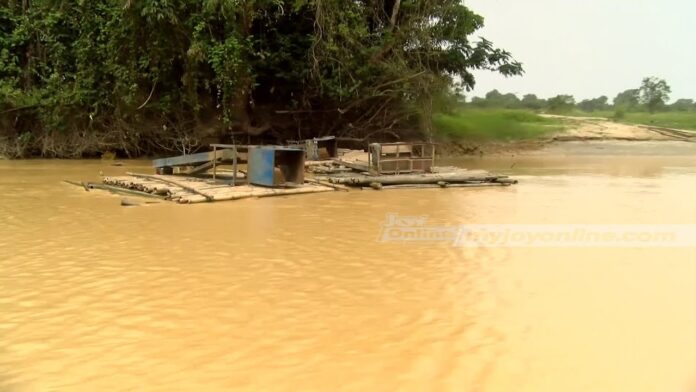The galamsey crisis, rooted in illegal small-scale mining, has devastated the environment and local communities across Ghana.
However, its most harrowing consequences are felt disproportionately by women and girls, making them uniquely vulnerable amidst this environmental catastrophe.
As Ghana faces imminent water security challenges due to galamsey, the long-term socio-economic impacts on these marginalized groups are becoming more apparent, raising urgent questions about their future survival.
Water is essential to daily life, yet in many galamsey-affected areas, this basic necessity is now toxic.
Rivers like the Pra, Ankobra, and Birim, once relied upon for drinking water, irrigation, and household use, have been heavily contaminated with hazardous chemicals such as mercury and cyanide.
For women, who are often the primary caretakers of their families, this contamination has far-reaching effects.
They are forced to travel greater distances to access clean water, increasing their physical burden and risking exposure to unsafe environments.
The health risks posed by mercury and other pollutants also affect women disproportionately, particularly pregnant women, who may unknowingly pass on toxins to their unborn children.
Studies have shown that exposure to these chemicals can result in birth defects, developmental issues in children, and long-term reproductive health problems.
Beyond the immediate health risks, the environmental degradation caused by galamsey has destroyed farmlands, severely limiting the ability of women to grow food and earn income.
In many rural communities, women are engaged in small-scale agriculture to support their households, but the depletion of fertile soil due to illegal mining has diminished their yields.
As these women lose their primary means of survival, the socio-economic pressures they face become overwhelming.
Many are forced to turn to low-paying, often dangerous jobs, exacerbating the cycle of poverty and making their children more vulnerable to child labour or exploitation. Girls, in particular, bear the brunt of these economic hardships.
With families struggling to make ends meet, many girls are pulled out of school to help with household chores or find work.
This not only limits their educational opportunities but also exposes them to exploitation and early marriage, trapping them in a cycle of poverty that is difficult to escape.
A call to Action:
Renel Ghana Foundation as the Convenor of UN Sustainable Development Goal Ghana sub-platform 5 demand from the President of the Republic of Ghana, through relevant Ministries and government agencies, an urgent release of a road map on tackling the dangers on women and girls’ challenges posed by galamsey operations in the country.
We call on decision-makers, especially Parliament, to take urgent and coordinated action to address these critical issues through a gender-sensitive approach:
Implement and effectively enforce both local and international laws to protect water resources from further degradation.
Illegal mining must be halted, and legal frameworks that combat these activities should be strengthened to ensure lasting environmental protection.
- Local governance structures must be fortified to guarantee that women and girls are actively involved in decision-making processes related to resource management.
- Invest in sustainable agricultural practices, clean energy, and other economic opportunities that empower women and girls. By promoting these livelihoods, we can protect the environment while offering economic security to those most affected by galamsey.
- In regions affected by water pollution and environmental degradation, improving access to health services is crucial. Special attention must be given to women’s health and the long-term effects of mercury and chemical contamination. Education programs that emphasize environmental stewardship, resilience, and the importance of protecting natural resources should be a top priority.
Finally, we call on all citizens, particularly women and youth, to stand against the harmful practices fueling the galamsey menace.
We call out on unconcerned behaviour from politicians and galamsey business owners that contribute to this national crisis.
Our collective voice is our strength in protecting our environment and securing a better future for the next generation.
ALSO READ:

